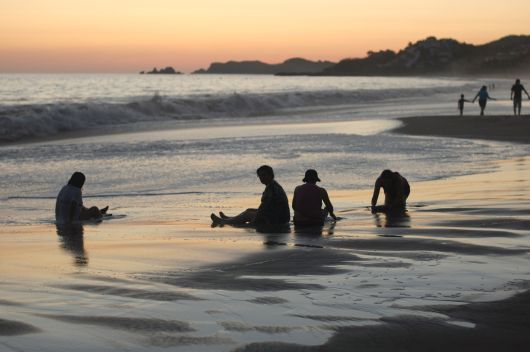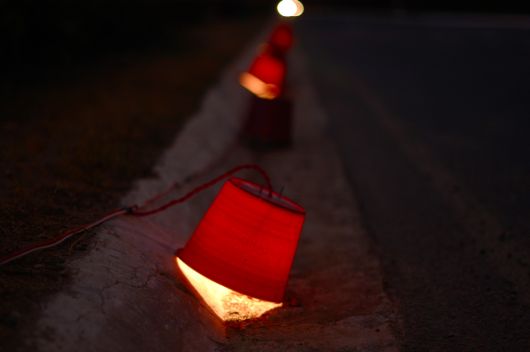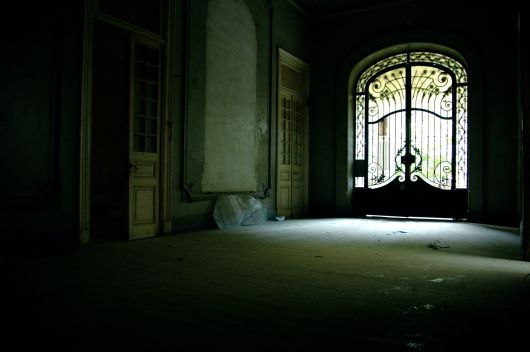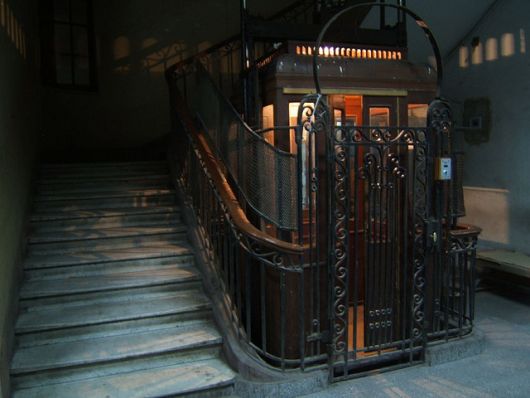 THE WORLD
THE WORLD In Which We Require Our Own Space
 Monday, January 8, 2018 at 10:23AM
Monday, January 8, 2018 at 10:23AM 
Efficiency
by ELIZABETH BARBEE
I needed an apartment to match my bohemian lifestyle, so I found a small efficiency on the outskirts of Austin. The place was rundown and seedy, facts obvious upon sight, but my mantra was there is beauty in decay. I had just broken up with my boyfriend of four years and it felt hypocritical to discriminate against anything that needed mending. I trusted my ability to romanticize the yellowed walls, the stale cigarette stink, the fact that my neighbors had Wi-Fi names like “Bitches Cum” and “The Dave Matthews Band.” For at least the first week I made the best of it.
Immediately after graduating college I took a job editing erotica. It seemed like the perfect gig for a young English major desperate to demonstrate the depth of her open-mindedness, so I pounced at the opportunity. My first assignment was a gay vampire e-Book called Pack that the publisher described as SEXTREME. Because all of the characters were male there was a lot of pronoun confusion. I could never tell if the protagonist were masturbating or getting lucky. Most of my notes in Track Changes consisted of a single question mark. Regardless, I felt like Anaïs Nin. If only I had been brave enough to shave my eyebrows.
My only friend in town was a free-spirited University of Texas graduate named Saul. He had just sold a story to This American Life, so we were both in the literary biz. He was my first visitor. The moment he stepped through the door he began speaking in the third person. “It isn't bad, but Saul wouldn't live here,” he said. I think now this was his way of distancing himself from the filth of my living space. It was also the first sign of the horror to come.

Later that night, when I was in the early stages of sleep, I heard screams coming from next door. They were not the kind of sexual screams I read about in Pack. They were frightening. The logical thing to do would have been to call 911, but in my dreamlike state I saw only two options: go back to sleep and let my neighbor die, or put on a pair of pants and rescue him. Because of guilt rather than altruism, I chose the latter.
It took him five minutes to open the door, just enough time for me to realize I might get shot. When he finally appeared he was wearing a knee length Madonna concert t-shirt and casually smoking a joint. “Hey, girl, what's up?” he said. “You want to hit this?” I shook my head and explained frantically the reason for my visit. He looked amused. “I get night terrors sometimes. No biggie. I'm surprised you haven't heard me before.” I asked no follow up questions and bought a pair of earplugs.
Shortly thereafter Saul took an assignment in South America. With my only friend gone, I started a tepid love affair with a first year law student I met at a coffee shop. He had all the markers of a serial killer (frightening intelligence, vacant eyes, distaste for pets), but he kept me company. Plus, he had lots of interesting views on intellectual property in the Internet age, so I decided to overlook his Ted Bundy quality.
Because I had grown to hate my own place I spent a lot of time at his. It smelled always of fried potatoes, but as far as I could tell he never ate. Instead of going out to dinner we stayed in and rented movies, most of which were directed by Ingmar Bergman. Persona is an uncomfortable thing to watch, especially with someone you vaguely suspect of being an ax murderer.
 Two weeks into our lackluster romance he mentioned a roommate whose existence seemed highly unlikely. “It's a one bedroom apartment,” I challenged. “Where's his toothbrush?” “Hugo is a busy man,” he said. “Always jetting off somewhere and taking his toiletries with him.” Perhaps if he had chosen a more believable name I would have stuck it out, but Hugo was too far fetched. I ended things that night. He rarely contacted me after that, but in a fit of paranoia I decided he was stalking me. Too cheap to buy mace, I kept a can of hairspray next to my bed. “If he breaks in I'll douse him with Aqua Net,” I thought.
Two weeks into our lackluster romance he mentioned a roommate whose existence seemed highly unlikely. “It's a one bedroom apartment,” I challenged. “Where's his toothbrush?” “Hugo is a busy man,” he said. “Always jetting off somewhere and taking his toiletries with him.” Perhaps if he had chosen a more believable name I would have stuck it out, but Hugo was too far fetched. I ended things that night. He rarely contacted me after that, but in a fit of paranoia I decided he was stalking me. Too cheap to buy mace, I kept a can of hairspray next to my bed. “If he breaks in I'll douse him with Aqua Net,” I thought.
I am embarrassed now by my egotism. I wonder where I got the idea that I was interesting enough to be stalked. The dude was weird, sure, but only slightly more so than average. Looking back I think it was the unfamiliarity of him that scared me the most. I had spent all of college curled up next to the same man and now I had to get used to this new body. It had hair in places my ex's did not, scars and tattoos I had never seen before. Everything about him, just like everything about that year, was foreign.
All of my discomfort during that time was self-inflicted. I made decisions based on the person I wanted to be (Anaïs Nin) instead of the person I actually was (Elizabeth Barbee, a suburban-bred geek with an affinity for stability). When I came to this realization, I found an administrative job that was boring as hell but allowed me to move to a nicer place. I submitted my final thoughts on Pack to the publisher. “Can we change the main character's name to Hugo?” I asked. “It sounds more vampiric.”
Elizabeth Barbee is the senior contributor to This Recording. You can find an archive of her writing on This Recording here. She last wrote in these pages about her vital signs.






































